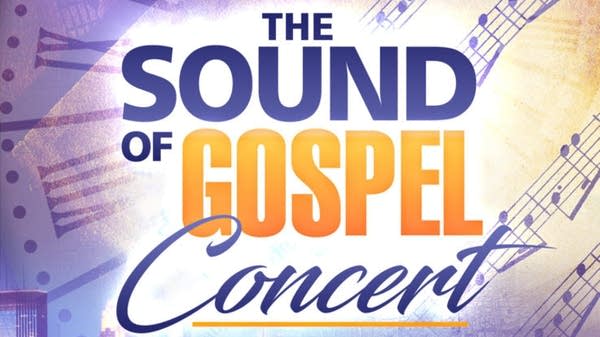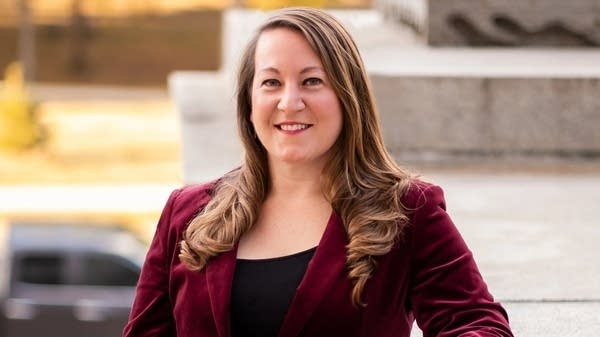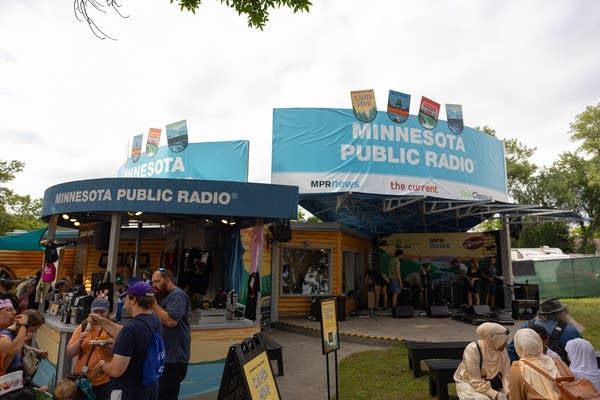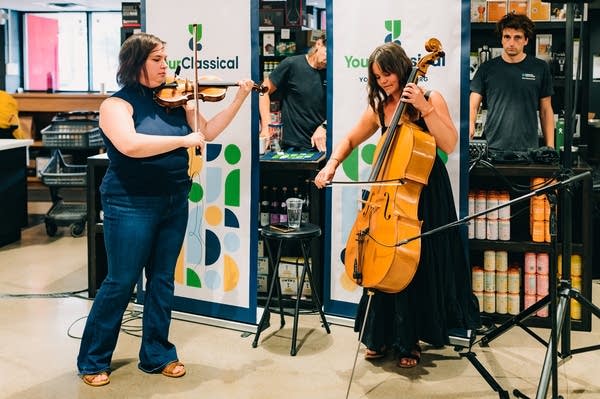"It's primarily an act of worship. But it is a performance, too — music with movement, dance and praising."
The Rev. Billy G. Russell is sitting in the sanctuary of the Greater Friendship Missionary Baptist Church in Minneapolis, reflecting on what gospel music is and what makes it different from other styles of musical expression.
Twin Cities audiences will have an opportunity to taste the gospel spirit for themselves in "The Sound of Gospel," a musical extravaganza designed to launch the 138th Annual Session of the National Baptist Convention on Sept. 3 in Minneapolis.
Russell is intimately involved in organizing both the convention and "The Sound of Gospel." This "concert of a lifetime" will, he says, communicate not only the visceral thrill of listening to gospel music, but also an appreciation of the dark history that spawned the music in the first place.

Russell's son Charvez, co-executive producer of "The Sound of Gospel," agrees that a historical appreciation of where the music came from is crucial.
"No matter how far back you reach in African-American history, we have always been a musical people," Charvez Russell says. "So when African-American people were brought over here as slaves, the music didn't stop; it just continued to evolve.
"Gospel music is an evolution of something that was already taking place in Africa. The more we got oppressed, the louder we sang, the more songs came out that had real meaning, that we're still singing today."
Many of those songs will feature in "The Sound of Gospel," where Charvez Russell will be among those directing the 200 singers specially gathered for the occasion from choirs across Minnesota.
Linking the musical selections will be a spoken narrative devised by playwright William Pierce and delivered by Twin Cities actor T. Mychael Rambo.
Pierce's script traces the ways in which gospel music has developed from its origins in slavery up to the present, and how the call-and-response work songs sung in the fields gradually began to shape the gospel style of singing.
"The call-and-response routines translated to spirituals, and from that came quartet singing," Pierce says. "And from the quartets we started doing choirs. We'll be touching on all of that, using actors and dancers along with the singers, and overhead visual projections."
"A lot of the songs that we've chosen are ones that people will be familiar with," Charvez Russell adds. "There will be four or five thousand people singing along to them on the evening."
"The Sounds of Gospel" also will trace how the subject matter of gospel songs has slowly altered through the decades, as social and political conditions have changed in America.
"Gospel music was always directly related to what was going on historically in society at the time," Charvez Russell explains. "So if you listen to gospel music from the 1960s, you hear a lot of references to going to heaven, going to a better place than where I am right now.
"But today I hear more joyful songs, saying I can make my life happen right now. That gives a testament on how far we've come as a people."
Linked to the glorious sounds of the gospel choir is the joyful, uninhibited nature of the body movements that gospel singers use to choreograph the emotions of the music.
Billy G. Russell, himself a gospel singer, says the body language is largely an instinctual reaction.
"The rhythm goes back to the motherland, and it's born in you," he says. "I can't sing without movement; it comes naturally."
For his son Charvez, there also is a spiritual dimension to the swaying and handclapping that often accompany gospel performances.
"Music and movement are things that God has given us as a gift," he says. "We want to give it back to him."
In the crazily consumer-driven environment of the 21st century, is there a danger that gospel music might eventually lose its spiritual dimension, becoming simply one among a myriad of options available to those seeking diversion or entertainment?
Charvez Russell believes there is.
"It's important that we continue to educate people about the root of where the music comes from," he says. "Gospel music connects us to what has sustained us. And that is God, that's the Holy Spirit."
And although gospel remains fundamentally an African-American style of musical expression, the choir gathered for "The Sounds of Gospel" has a significant number of singers from outside the African-American tradition.
"It says something about the music that it has made such an impact and that other people want to sing it," Pierce says. "If you understand the history of the music, you can express it back."
"This is going to be something new for the Baptist Convention," Billy G. Russell adds. "They're coming to Minnesota, and I've asked a lot of white people to sing with us."
For Pierce, the cross-cultural element is a key part of the message being carried by "The Sounds of Gospel" presentation.
"It's about inclusion," he says. "There are about 40 or 50 choir members who are white. That was intentional. The tag line of the convention is, 'We're better together.' We can't say we're better together if we're separate."
Love the music?
Show your support by making a gift to YourClassical.
Each day, we’re here for you with thoughtful streams that set the tone for your day – not to mention the stories and programs that inspire you to new discovery and help you explore the music you love.
YourClassical is available for free, because we are listener-supported public media. Take a moment to make your gift today.









